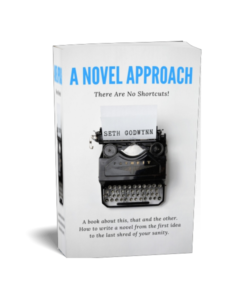Research
A.P. Atkinson
A question that’s asked a lot is about the nature of research, and whether or not you need to do it. To me it seems rather obvious. It’s like eating a spicy curry and sitting on a yellow velvet sofa the next morning. Your stomach is growling at you so loudly that your dog is hiding under the kitchen table. Your bathroom is only a few meters away but you’re looking up and wondering if you can be bothered with the whole business of going there – I mean, it’s only ‘just in case’. A few meters seems so far and the yellow sofa is so comfy… It’s not like anything could go wrong if you just don’t bother, is it?
You see, I could never quite understand the idea that you might not need to do research. The information you probably need is right at your fingertips on the world wide web and we have never lived in times where it’s easier to get at. The idea that someone might not want to get it is worrying. What kind of book are you hoping to write, where you expect to just make everything up?
If you were writing fantasy, you would still be expected to do some homework. Surely an author not only realises that but embraces the concept of having a deep understanding of the world they’re creating. Do you fully comprehend the weapons you’ll be describing, do you know how to ride the animals? The job your protagonist begins doing, will you understand enough about it to describe it in a meaningful way?

Research is a vital part of making your story come alive. You’re painting an image in the imagination of your audience using ideas that take form in the words on your page. The more vivid and meaningful the descriptions are, the more real and vibrant your story will become.
You only have to look at small budget movies to see what I mean. I’m sure we’ve all seen extremely slipshod movies where the protagonist is firing a gun and the effects budget won’t stretch to actual effects. Often these days, you’ll hear a small plopping sound and, perhaps, a little post-production flash of light. The gun won’t move from recoil, since it was never actually fired, and the victim’s reactions will be laughable when they’re shot. Those movies are fun to laugh at, the ‘so bad they’re good’ kind of films we all love to hate.
This kind of thing just drags us out of the narrative. When we see things that simply aren’t believable, it destroys the spell that the story has and our suspension of disbelief comes crashing down. Ironically, it’s more important to research the facts for a fantasy story for this very reason. It’s all too easy to be reminded that we’re just watching grown adults performing make-believe and we can no longer forget just how ridiculous all this is.
Compare that to a production where an effort has been put into making things look realistic. Guns are heavy, they kick when you shoot them. They’re nowhere near as accurate as people think and hitting moving targets is hard. Being shot doesn’t throw someone across a room, it’s a horrible wound that usually makes the victim slump to the ground in agonising pain. And, some things almost all directors forget is the whole use of guns is terrifying. Most people are horrified to even hold one in their own hand.
The first style of storytelling isn’t from someone that wants to tell a story, and that’s why it fails. These kinds of directors are primarily interested in being involved in the business, they are taking a lazy route in their quest for success and easy money.
We usually find that the authenticity put into the second kind is indicative of creators who believe in the art of making a compelling film.
That’s the difference that research will bring to your work as a writer. It shows that you’re not just interested in selling books, but that you value the story you’re writing. It’s the mark of professionalism instead of cynically grasping for the audience’s wallets and, believe me, the audience can tell.
So research is an essential part of the process. It always has been, and always will. At the point where that is no longer true, either there will be no people left who are capable of reading a story or automation will take over the role for us. Either case is not something to look forward to.

When you speak, nobody will take you seriously if you don’t speak with authority; when you write, it’s exponentially more important. This has always been known, and forms the basis of the old adage of writing what you know. It’s conventional wisdom because it has stood the test of time.
Don’t believe the people who say you don’t need to. It creates sloppy, empty and shallow work, it’s lazy and it’s disrespectful to your audience, your story and yourself.
If you want to create a story worth telling, put in the work to tell it.
There are no shortcuts
Many thanks for reading this article. We hope it was interesting, informative and entertaining. Follow us on social media or share our content on your own pages. It helps us grow so we can create more free content to help you.

